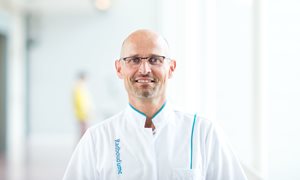4 April 2018
 Circulating tumor DNA in esophageal and rectal cancer patients undergoing chemoradiation therapy
Circulating tumor DNA in esophageal and rectal cancer patients undergoing chemoradiation therapy
Related news items

What can we learn from rural Tanzanian food?
23 December 2021 What we eat affects our bodies. A diet high in plant based products and low in fat offers health benefits and prevents lifestyle diseases, such as cardiovascular disease. This is what Quirijn de Mast shows based on his research in Africa. go to page
Freezer Challenge by Teun Bousema
13 April 202113 research groups, 1280 boxes discarded, 26% less energy consumption, and two winners. Watch our short video with the results of the Radboud Freezer Challenge. It is safe, and you can do it anytime. Warm up your freezers to cool down the planet!
go to page
Dutch Cancer Society grant for organ preservation study
1 October 2020 Hans de Wilt received a Dutch Cancer Society Grant of 625K euros for the STARTREC trial. The STARTREC trail is an international trial for patients with early cancer in the distal rectum go to page
Increased role of patients after bowel cancer treatment
30 July 2020 Approximately 14,000 patients get colorectal cancer every year. Almost all patients are operated on and monitored afterwards (follow-up). In 2019 Radboudumc started a new approach to follow-up research after the treatment of stage II/III colorectal cancer. go to page
Guiding the surgeon real-time tumor visualization during surgery
26 February 2020 Incomplete excision of tumor tissue negatively affects the prognosis of the patient. RIHS researcher Mark Rijpkema and colleagues are working on the development of new dual-labeled tracers and currently are implementing this into the clinic. go to page
